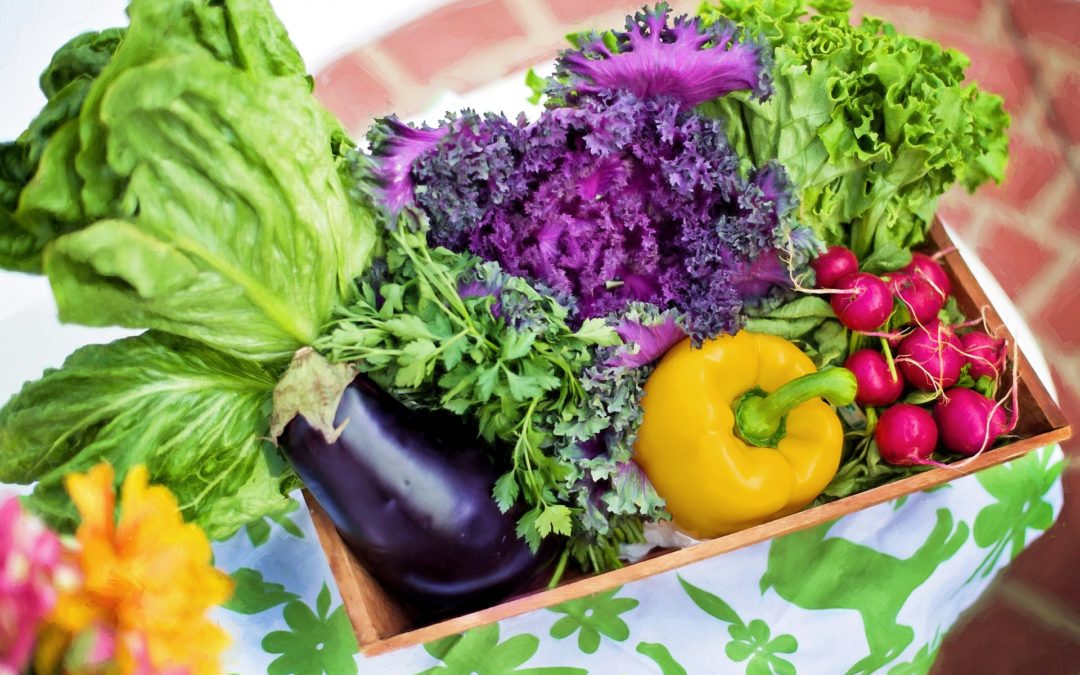Three Steps Towards a Pest Free Organic Garden
Many homeowners utilize their backyard space productively and plant a vegetable garden in it. These gardens provide fresh, home-grown vegetables that are free of chemicals, pesticides, and other such additives. A vegetable garden is also an excellent hobby and can offer a great deal of personal satisfaction and comfort. However, these gardens require a lot of time, effort, and commitment.
You need to research growing techniques, determine which vegetables are most suitable for your region and climatic conditions, and figure out how to keep pests away. Pests are often the biggest challenge in vegetable garden, especially if you want to grow organic produce and don’t want to use chemical pesticides. Most people don’t realize that they don’t need to invest in expensive organic pesticides and can easily find effective solutions at home and in their pantry.
1. Learn the Difference Between Good and Bad Bugs
People are often surprised to find that some bugs help their vegetable garden grow and remain healthy. Not all the pests you find will eat the leaves and damage the produce. If you want your garden to thrive, you need to understand the difference between good bugs and bad bugs.
Your natural pesticides should get rid of bad bugs while the garden environment should be healthy enough to attract good bugs. This can be a delicate balance but once you understand how it works, you will have a thriving garden. Here’s what you can do:
- Look for information about bad bugs and learn how to identify them. There are many books and articles available online that can help you with this process. Some examples of bad bugs are hornworms, vine borers, and aphids, etc.
- Create a welcoming eco-system for your bugs. Fruits and vegetables grow well in the natural habitat without human interference because nature creates a good balance and provides the right environment. You can attract good bugs by providing nesting sites, nectar, watering holes, and untilled soil.. This will help create a good balance. Some of the most beneficial insects are invertebrates like earthworms. Make sure they’re protected and healthy in this environment.
- You should also work to attract insect eaters like birds, lizards, and other such larger animals. They will help keep the insect population in check and make sure your vegetable garden isn’t overwhelmed by the pests.
When you create a good environment in your garden, you won’t have to deal with too many pests and insects.
2. Natural Pesticides for Vegetable Garden
Of course, just creating the right environment doesn’t always work. While a good ecosystem will effectively limit the amount of bugs in your garden, you will still have to deal with infested leaves, produce, and damaged plants. The best and safest way to avoid this is to use organic, home-made pesticides. These pesticides are very effective and easy to make. They’re also quite inexpensive so they can easily fit into any gardening budget. Here are some of the most popular recipes available online:
- Garlic and Chili Water: This is a very popular recipe among gardening enthusiasts. Combine ½ cup each of chopped chilies, garlic or onions and blend it in an electric blender. After you create a thick paste, you should add 2 cups of water, mix the solution, and store it in a glass container. You should keep the container in a warm place or in sunlight for at least 24 hours. After the solution has sat for a day, you need to strain the vegetable contents carefully to separate the water from the paste. This water is your pesticide and you can store it in a spray bottle.
- Oil and Soap: Choose a mild liquid dishwashing soap and ordinary cooking oil like vegetable or canola. Mix a tablespoon of the soap with 1 cup of cooking oil in a bowl and combine about 2½ teaspoons of this mixture with 1 cup of water and mix well. You can spray this solution onto the infested plants to protect them from pests. Make sure that you shake the solution thoroughly before you mix them. You can also mix just soap and water and use that solution as a pesticide in your garden.
- Neem Oil: Mix about ½ an ounce of neem oil with ½ a teaspoon of mild dishwashing soap. Stir the solution carefully but thoroughly to ensure all the ingredients are mixed well. Pour the solution in a spray bottle and spray onto the infested plants as required. This is considered one of the most effective natural fertilizers available in the market today.
These are just some of the many natural pesticides you can use in your vegetable gardens for best results. You can use ingredients like oranges, tobacco, and dried chrysanthemums as well. You’ll find these recipes online in several home gardening blogs and websites.
3. Monitoring Your Garden
The best way to tackle pests is to spot the signs early and apply pesticides immediately. Some people let their garden grow naturally and don’t check as often as they should. That increases the risk of pest infestation. You will have a difficult time dealing with the infestation if you don’t catch it early and try to limit the damage. Here’s what you can do to protect your garden:
- Conduct a walk through your garden every day if you can. This won’t take much time but will help you spot signs of pest infestation early. Look for half-eaten leaves, spots and visible insects.
- When you spot these problems, immediately remove the infested sections of the plant and apply your homemade pesticides. This will keep the insects at bay.
These steps will help you keep all kinds of pests and insects away from your vegetable garden and ensure it is healthy. With regular care, good fertilization, and proper environment, your vegetable garden will provide a bounty of produce for you and your family to enjoy.

